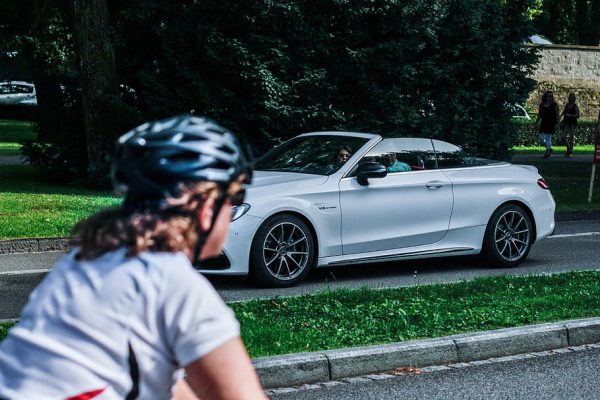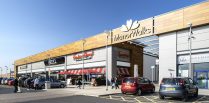The future of the car
By Michael Hardware, Director of Planning and Property
The future of the car has been debated ad infinitum in recent years but the pandemic has perhaps added a new dimension. As new homes and communities being designed now will have to serve its residents for decades to come, should we be looking again at the role of the car?
People have been wedded to their motor cars for years. The relative reduction of the costs of owning and running a car led to an explosion in car ownership. According to the RAC Foundation, car ownership in the UK has risen from 19 million in 1971 to 31 million by 2007. Figures for 2019 show over 40 million cars and vans on the road.
This growth led, in turn, to cars being a major consideration in the design of homes and communities. But more latterly, with the recognition of global warming and the health impacts of pollution, how to reduce reliance on the car and car usage.
The new garden communities around the country provide a blank canvass to try and do this. The Harlow and Gilston Garden Town a case in hand where the evolving strategy is to encourage 60 per cent of all journeys from the new developments to be by sustainable means, and for 50 per cent of journeys from the existing communities to be the same (from a base of around 30 per cent).
The onset of the pandemic could impact this anticipated trend further, but from a different perspective. Whereas in the past travel was seen as a given – we all have to travel to work, travel for business, go shopping and so on, the onset of the pandemic has shown to everyone that this may not be the case – many people have been forced to work from home, to have virtual meetings and do their shopping online for delivery. Most have been surprised how easy the technology is to use and how reliable. Time will tell just how much of this will continue after the pandemic has passed but it is clear that at least some will and perhaps we should be looking now at the design of our homes and communities.
There are interesting times ahead – the imminent ban on petrol and diesel cars, the reduced travel needs brought on by the pandemic, the increasing calls to less car usage for environmental and pollution grounds, are all culminating into a ‘perfect storm’ for the future of the car.
But any changes for the better will need to be introduced gradually. The sudden banning of cars and forcing everyone to walk or cycle is simply not going to work. It would be a big mistake to try and coerce residents as they will simply rebel and little will be achieved. Similarly, setting the bar too high will lead to people thinking the targets are unattainable and do not apply to them. People need to be taken on a journey with small incremental steps that can easily be taken. Over time, the big target will get closer and closer until it is achieved. Perhaps the pandemic is helping us along that path.
The car is going to remain a key part of our lives for some years to come, but the homes and communities being built now need to not just meet needs to today but also be flexible to accommodate needs for tomorrow and for decades to come.

Strategic land and site promotion
We work with strategic land developers and promoters, landowners and planning consultants to promote sites …

Energy and infrastructure
From new nuclear and unconventional gas to renewables, waste and airports, our team has worked …


